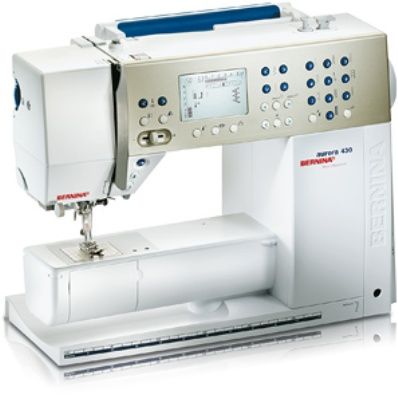
Bernina
Looking for a new sewing machine? Sewers know they should research machines before they purchase. And, there are many guides and checklists available to help you do so. But what many sewers overlook is that finding a good dealership is just as important.
Just as you rigorously search out information on different machines, do the same with the dealerships. Start with the manufacturer’s website for a list of their dealers. Google the dealer to see what others have to say about them. And most importantly, ask your friends if they are happy with their dealer. Then, call the different locations to make sure they have the machines you are interested in on display to “test drive.” (Hint: This is not the time to “talk price”—many dealers have contracts with the manufacturers prohibiting them from giving prices over the phone.)
A good dealer will ask YOU lots of questions–so have an idea of what you want before you shop. It will be frustrating to you (and to the sales person!) if you walk in and say, “I want a sewing machine.” Rather have an idea of what features and functions are important to you. If my mother taught me anything, it was to distinguish between my needs, wants and desires. When I bought my first “grown up” sewing machine, my “need” was a machine that could handle some abuse and sew through a variety of garment fabrics. My “want” was a machine that had a variety of decorative stitches and versatility in its functions. My “desire” was a machine that could upgrade to do embroidery in the future. Whatever your list is be sure to communicate it to the sales person early on. That will allow them to steer you to the best machine for you.
You should ask the dealer some things too:
1. What classes do they offer? A good dealer should offer at least one free guide class (required by some manufacturers).
2. Can you come back with questions after your guide class? You should think of your dealer as your friend and feel free to come back with however many questions you have for the entire life of your machine.
3. What is the warranty? There should be two—one by the manufacturer and one from the dealer. The manufacturer will cover parts for a certain length of time (some even up to 20 years!) and the dealer should include the guide class and possibly a limited-time repair service.
4. Who does the machine repairs and where are they done? This is very important! Your machine should be tuned up once every few years. Having a qualified, easily accessible service technician is vital. Find out if the repairs are done on site or if they are sent elsewhere. Also, inquire if the technician is certified by the manufacturer.
In summary, here are they keys to getting the best machine for you: do your research; know what you want; when you find a good dealer, the perfect machine will follow.
Happy dealer shopping!
What is your experience with your dealer? Do you have a stand-out dealer that you love and recommend to your friends? Do you have any other sewing machine buying advice to share?


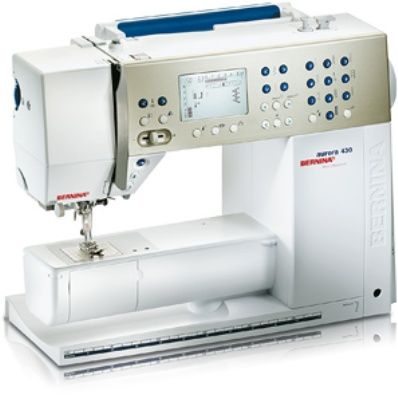
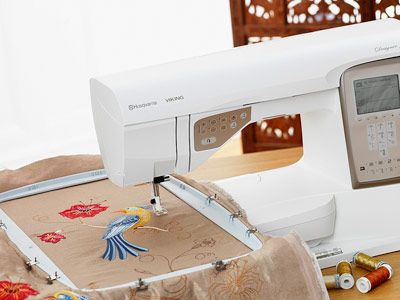
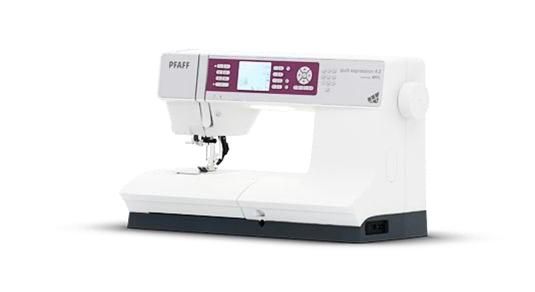
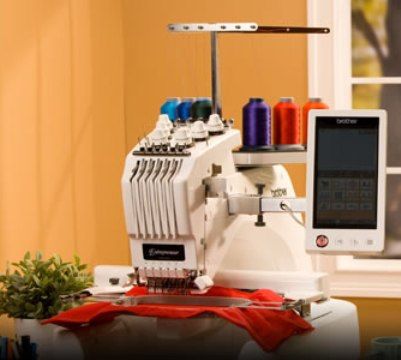
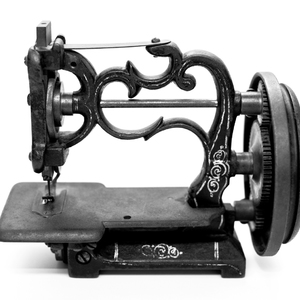



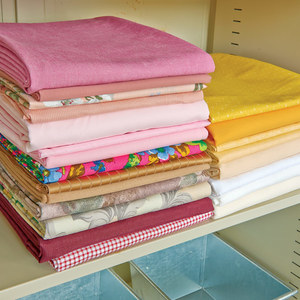



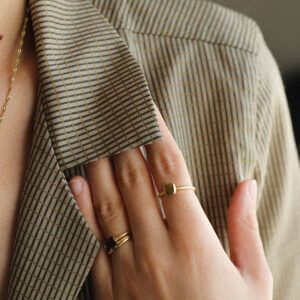
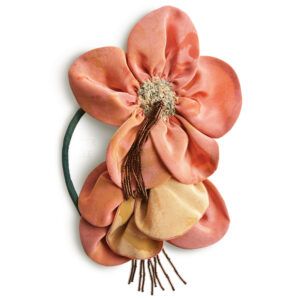
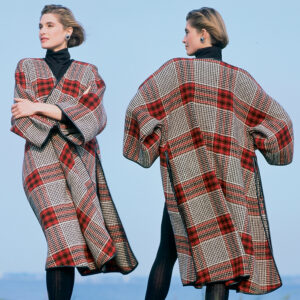
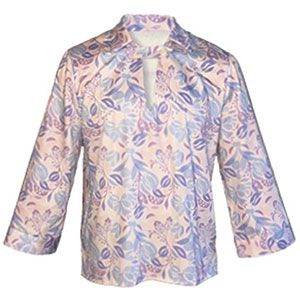
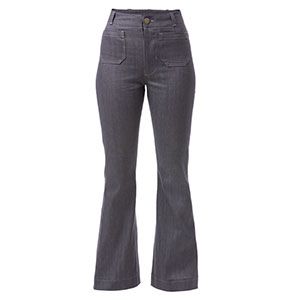
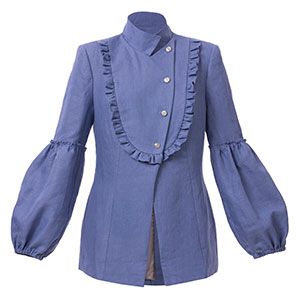
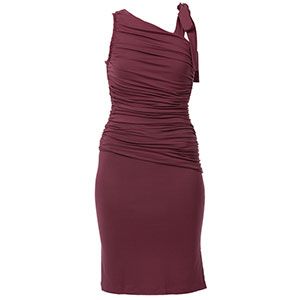
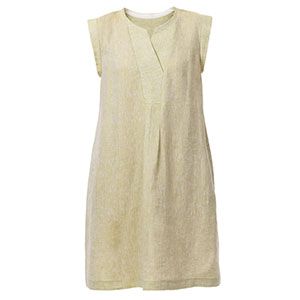
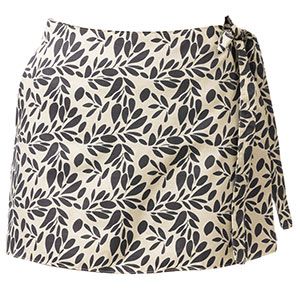
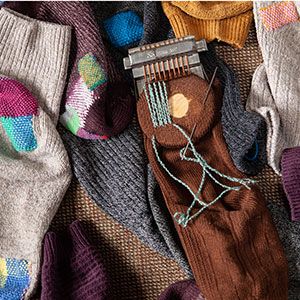
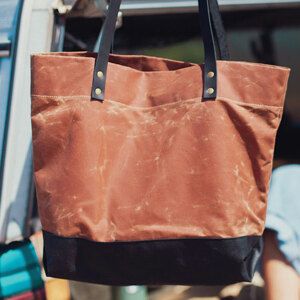
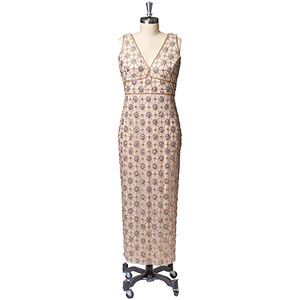
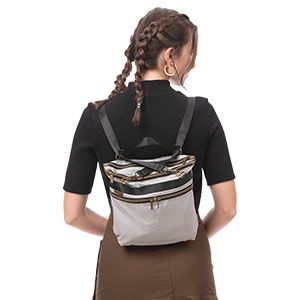
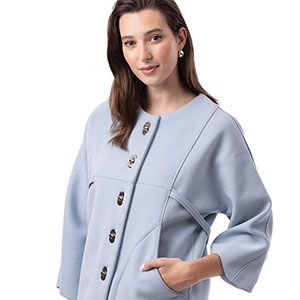
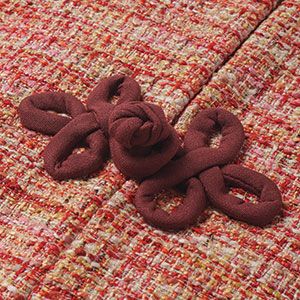

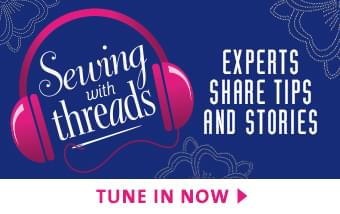

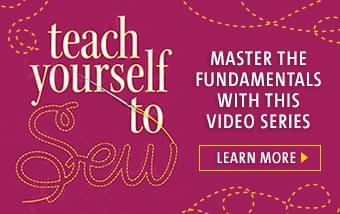

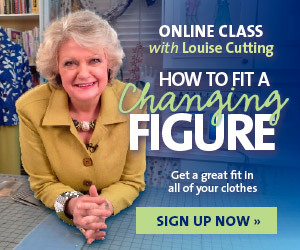
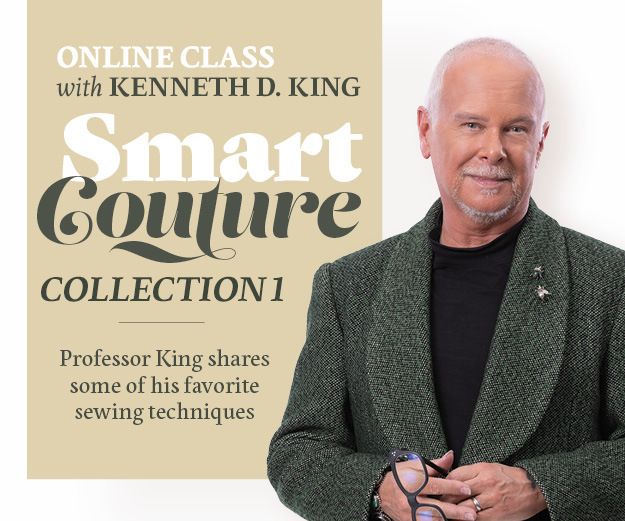



To be up front about this topic I must let you know that I do sell sewing machines at a company owned store for a well known sewing machine company but I really wanted to add to the list above: you should also look for someone that is knowledgeable about the machines and sewing in general. Also convenience of hours of operation and location to your home. There are alot of great deals out there on the internet but most manufacturers prohibit their dealers or their own company owned stores from selling on-line. If you purchase from someone on-line you may not have a recourse when it comes to getting service in or out of warranty. I have seen many customers that purchased on-line a machine that was "new-in-box" and when it arrived not all of the parts were there and some items were broken. By the time they purchased the missing items and paid for repairs it ended up costing them more than what I would have charged them for the same machine. And if this was somehow a machine that they bought from me it would have been as simple as replacing the parts and or the machine.
I always consult Consumer Reports magazine before going out to shop to get an idea of what's out there, and get me in the right frame of mind to compare, rather than get carried away with specialized features.
I worked my way through college in the theater costume shop. We had one of everything, so I got to know a lot about a lot of different machines. When I left school and went shopping for a sewing machine of my own, I hated the Singers of that time--plasticrap. I loved the Berninas and the Pfaffs, but they were beyond my budget. I bought my first Viking in 1973. I traded up in 1996--to a Viking.
When I am looking for a new machine, I make up kits with the kinds of fabrics I sew on, the needles I like to use and specialty thread. Even a cheap clunker will sew beautifully on the very stiff fabric some dealers keep for demonstrating machines. I have some acetate from hell that has stood me in good stead when checking out sewing machines.
Buy from a dealer, and establish a relationship with the dealer. If you are new to sewing, buy the best quality machine you can afford, not necessarily the one with the most features. I taught costuming in one of the local high schools, and found that the frustrations of "fighting the machines" turned many of our students off from learning how to sew. When we replaced the cheaper machines with basic machines of excellent quality, many more of our students took to sewing. An excellent machine doesn't have to be new. A well-maintained machine can last for more than 50 years of regular use. In many cases, sewing machine dealers offer unclaimed machines or trade-ins for sale. You can get a top-of-the-line machine for its time with decades of life left in it for a very reasonable cost.
Before shopping for a machine, sit down and make a list of the kinds of sewing you do. Be specific about your needs. Do you actually do embroidery? Are you a quilter? Do you make doll clothes? Are you a garment seamstress or tailor? The purpose of this little exercise is to make sure you don't "Over-buy" a machine. I've talked to so many people who have high tech machines and they never use 90% of the features. Get all the information you can about the machines you look at. Take home any brochures that list features. Go on-line and see what others say about the machine you are considering. It is amazing what you can find out by searching Google with the statement "complaints (or reviews) about ....... sewing machine". When you test drive the machine, ask lots of questions. What kind of guarantees does it have? Can it hem? Does it have an automatic direction change option. etc. I personally have a Bernina 941. I could have bought a machine with more bells and whistles but 95% of my sewing is just straight stitching for quilting and garments. I do have some decorative stitches which I use for my granddaughters clothes but I'm so glad I didn't "over-buy".
I bought my second machine from a reputable dealer. But as we all know time marches on and dealers retire. My question is...how do you find a new reputable dealer who will welcome a client with a new machine?
My one thing I can say after sewing on a variety of machines and researching sewing machines when I needed a new one is that NO ONE MACHINE does it all. Even those top-of-the-line super expensive machines may do some things better than other machines, but may also be so much more complicated to use. I have 2 fairly basic machines. One is a straight stitch semi-indutrial machine and the other is a computerized machine. Both of those machines I purchased new and the combined total price was less than what most high end machines cost. I bought my first computerized machine over 20 years ago second hand and paid more for that one machine than the 2 new machines I purchased in the last 2 years. There were a lot of cool features on that first machine, but it had issues and that's one reason I got rid ot it. Price is not always and indicator of a good machine. Used machines can be just as good as new, it depends on where you buy them and what they are. Do your homework to see what the going rate is. Some older machines still have a high price tag because they are classic workhorses.
I know several women who bought top-of-the-line machines and don't know how to use 90% of the functions. I personally feel it's better to buy a mchine that suits yor needs today and not in the future. They are always coming out with new machines that do practically everything and maybe one day you might want a machine like that, but if you buy a machine like that today, you may never use all the features/functions and they could be outdated by the time you want to use them, because they dreamed up an even better machine.
I truly wish that we as sewers/quilters could pick and choose the features we wanted in a machine in order to design the best machine for ourselves. Like buying a basic car, or a house and upgrading the carpet, colors, etc. If we could do that the sewing machine industry would have a lot of happier customers. But they want you coming back and trading in a machine to buy a new model like the car industry. Why couldn't we just pay to have a feature added to the basic machine we chose? More features the more it costs. We wouldn't have to pay for and buy it all now as it could be added whenever we wanted those features. Wouldn't that be the perfect machine then? But alas the perfect machine doesn't exist and that's why I have 2 machines, plus and old favorite I take to classes.
I have had Singers in the past and I went with the top of the line Bernina at the time, didn't use all the features at the time, but I sure do now 20 years later and I knew I would when I bought it. I am so glad I bought it when I did because they are so expensive now, I wouldn't want to spend the money. I have never been interested in quilting and the embroidery very little so, I am happy with the same machine I bought twenty years ago. I have replaced the serger several times because they have perfected them.
Buy the best you can afford from the beginning......purchase from a dealer who offers free advice, both in person and on the phone and classes. I purchased my first sewing machine after a 20 some years absence from it and found I really love it again and had more time for it and then traded up (while loosing money and tax cost) three times to finally get the top of the line which will keep me sewing until the day I can no longer sew!
I was taught to sew on my Mother's Singer sewing machine. Unfortunately Singer machine was not very good when I was first married and had my children. I tried for years to use a Singer, than a Kenmore but they were let downs. But I discovered Husqvarna Viking and now own a Designer II. I will not purchase any other brand nor will I suggest any other machine other than a Brother for a new beginner only. If I could I would upgrade to a Diamond. I have own 2 Husqvarna Viking in the last 35 years. Judy Morris
Just a year ago I traded in my 1963 Bernina, a 50-pound dressmaker's wonder, and bought a gently used Bernina 435, a computerized machine. I like the new features but miss the smoothness of my old friend. Some of the automated stitches were possible on my old machine, but they are quicker and more accessible on the computerized machine. I think buying a machine requires careful self assessment, how much hand finishing do you like to do, and how much patience do you have with multi-step machine operations being two important questions. Also, how much do you like to stretch your skills? When I bought my old Bernina, it was the most versatile machine I had ever had, and I learned over time to use and appreciate its many beautiful features. It helped me expand and stretch my skill and gave me confidence to tackle projects I wouldn't have considered with the clunker Singer I had had before. By the time I finished my wedding gown, lingerie, veil, and trousseau, I had learned to use all its stitches and feet. Some of the new machines I looked at recently have overcomplicated themselves--some operations don't really need to be done my machine!
Buy what you need. Test on your own fabric. If you are not interested in embrodiery don't buy the embroidery machine.
this article is very timely. My beloved Elna Air Electronic from 1979 died while I was quilting a Christmas present on it. I have a great dealer who recommended (to my surprise) a Singer 7467. It ranges in price at about $250 in his store. I have seen it online cheaper, but honestly I am wondering how a machine can be any good at that price. I did not get a chance to try it yet and will go back. He did a demo for me and I was impressed at the drop feed and stitch variety. LIke others posted here, I agree I don't need a variety of stitches. I need the drop feed as I want to do quilting. I have read some bad reviews of this machine as well as some good and I am just wondering what others have to say about it. I can't spend a lot of money right now and I am not sure if I should save money up or just go for the cheaper machine. I also know Singer makes what they call a "heavy duty" machine which is also below $500. Again I am wondering how it could be so cheap and if it is any good. Any help would be appreciated. Thank you!
A few years ago I bought my "dream machine" a computerized Pfaff. I love it. I have not used all the stitches but plan to eventually. I like to do a variety of types of sewing so the machine is very versatile. I was told that the machine could be updated when a new model came out. Unfortunately the new models were too different. The dealership is helpful and provide good service.
I have owned several machines throughout the years, some bought new, some used. I have only depended on a dealer when I bought my first serger and this was when sergers were new to the home market. I bought a Brother for embroidery on line, got a good price and it came complete in-the-box. I really haven't much use for a dealer at this time either because I have no intention to buy a new machine. My two Pfaffs, the Brother, my Elna serger (yes, the original one), my Babylock hemmer and my Brother Coverstitch all are doing just fine, thank you. Now, you might say, wow, what does she have against dealers. Plenty. Send your machine to be checked out, find out all they did was to sock it full of grease when it needed a new motor. Take it to a dealer for a checkup and find out some months later that not only does it not work correctly but they also removed a special stitch I had installed years ago. (I know I should have checked it out upon bringing it home but I just went to my other Pfaff and stored away the one I had "fixed".) The only problem I am having right now is with my Pfaff serger. Get this: I took it to a dealer to be fixed and was told it could not be completely fixed, it was "too old" and the parts were not available. I don't think so. I'll search around on line and find a repair person with a good reputation and send it to him. I went back to this same place with my newer Pfaff SM and was told the repair person did not want to fix my machine because I was "too fussy". I took it elsewhere and after several months went to see about it. I got it back minus the threader. The repair person was on his honeymoon. I made my displeasure known (I did not get nasty) so I got my machine back fixed for free but minus the threader.
You would think there would be really good repair people in the are where I live but I haven't found him/her as yet. And I know I am not the exception. When I was studying Fashion Design in college, we talked among ourselves about this and others of my fellow students had the same sad experiences.
I sincerely hope you find your ideal dealer, I know I haven't found mine.
fotofashion
Obviously, a knowledgable dealer with an expert repair person on staff is what we want. But how rare to find one! I live in New York City with a Pfaff dealer right around the corner but drive 45 minutes to Rockland County to get my Brother and Pfaff machines serviced, happy to finally have found somebody trustworthy.
Moreover, not everyone lives where there is a choice of dealerships. You may be limited to choosing from one or two brands because that’s what is available. When I was looking for a new machine, I wanted a sewing machine store that had a variety of brands to try out, but most places had one or two brands and that was it. And many expeditions to “dealers” turned up dinky places selling mostly vacuum cleaners with a very modest sideline in Singers and a hodgepodge of various brands of used machines. Depressing! So online reviews and purchase was what worked for me in the end.
Consumersearch.com has excellent advice on what features to look for and also a report summarizing reviews from many sources, including Consumer Reports, and a list of best machines in various categories. Highly recommended.
Sewing machines have planned obsolescnce not unlike most electronics. Dealers want to sell quilting and machine embroidery. I do garment and heirloom sewing. I chose the Pfaff 7570 in 1996 because of the presser foot assist feature. It does for sewing what differential feed does in a serger. I had the most competent serviceman available in Rockford, IL. He retired. Pfaff doesn't even list my 7570 any more. Fifteen years is not exactly obsolete. I have a 1920 Singer treadle shoemakers machine I was able to find parts and operator's manual for on line. I can work with leather now--shoes, bags, etc. If only I could treadle and watch the needle at the same time. My new Viking serger is far more complicated than my first serger from 1989. After I got the new one, I found the nerve to take the old one apart myself, oil the tension discs, clean it thoroughly and keep it. It has more bed area, nothing sticking up in the way, and threading is a breeze. Threading the new Huskylock is like working in a dark cave, behind my back, with eyes closed. It's narrow 3-thread stitch is twice as wide as the old White serger.
Loved your article. I have had just about every brand of machine, but my alltime favorite is my Elna 6004 which I purchased many years ago and it's still rolling along. I also have an Elna serger and in the middle of an alteration job, the presser foot lifter broke. After trying in vain to contact my local sewing machine store, both by phone (only got a message) and by email (which was never responded to) I went online and found the website sewingpartsonline.com and they are fabulous. Received the part within a few days and now I'm back in business. For me, the service is very important since I have an alteration business and if my machines are down, I'm dead in the water. Unfortunately, I'm not that happy with the repair service I've received. Very expensive and takes forever.
Almost 2 years ago I bought a Pfaff 2170, sewing/embroidery machine. I got so caught up in the selling experience and machine features that I lost all focus of what I really needed and could afford. Fot much cheaper purchases, fridges, dishwashers etc. I do more research and have a clear idea of my needs and budget. I think buying a sewing machine can be an emotional experience for some of us, so be careful and know what you need and can afford. Also how much time and energy you will have to actually use it. I have been doing more sewing than I had been but my Singer from 1961 is still working perfectly. Glad I didn't trade it in.
There are some great ideas here. I have long used Bernina and Babylock machines and sergers. I keep both brands. I purchased the new 830 Bernina as did a couple of my friends last year. It is a big investment $10, 000 +. We had a great dealer who offered lessons and worked with all of us on the new capabilities offered by the 830. Within about 6 months Bernina pulled their dealership. When several of us complained to the company they responded (somewhat snippy) that others were in the area. Well, true sort of.......... One of the ladies who purchased the 830 at the same time I had was having a lot of mechanical problems with hers. She went to two of the local dealers. One told her that she didn't buy it from them so it wasn't their problem. Another was nicer but basically said," I'll do what I can but your not my customer!" When reported to Bernina they said the dealer shouldn't have said that. Well, big whop~! We were all so angry at Bernina and their lack of response that I doubt we'll ever invest that kind of money with them again or advise our friends to do so. What shame that the area supervisors were so unconcerned for loyal customers.
Full disclosure here: I work for a major Bernina dealer in the Washingotn DC area. I also own Bernina machines. It is true that when you buy a machine, you are also buying the dealership. You want certified technicians working on your baby, not just a guy who's good with a screwdriver. Also, one thing about my now 8 year old starter Bernina is that I will be able to get parts for it forever! We service Berninas that are even older than 60 yrs, and still sew great and Bernina continues to make parts for it. My mom bought a top of the line Viking in 1973, and was told 10 years later that no parts were available. That scratched Viking off my list forever. Also, buy the best machine you can afford. Remember that you will be sewing on it for years and you never know for sure where your creativity will take you. A good sewing machine is your best sewing tool, and the easier it is to use the more sewing you will do. Be sure that your dealer is established and gives the guide classes for your machine. A free first-year service is a good plus, too. There is nothing wrong with buying a used machine, but you need to see it in person and know its service record, just like buying a used car. And a final warning: beware of machines with plastic parts inside!
I have sewn for over 50 years on various cheap machines. A few years ago I had the opportunity to spend what I considered a substantial amount & I wanted a dealer whom I could depend on for classes, info and maintenance. The only one in town is Huskvarna-Viking, so I went with them. When I had a problem with my machine when it was only a few months old, the repairman (& shop co-owner) could not fix it, even with H-V's help. So they gave me a new one! I was flabbergasted and obviously delighted. Not only are classes included in the price but free maintenance for 5 years. They've been super to deal with. It's a mid-price machine, I believe, & I love it. Haven't gotten into everything yet, but I plan to.
I bought a Pfaff 7570 one year before they "upgraded" to the fully computerized machine which has been superceded by the Creative vision AND bought a starter machine for my granddaughter. 5 years after I bought them the Pfaff dealer here sneered when I took my Pfaff in for servicing then asked about additional presser feet, etc. Then laughed when I asked about more embroidery design cards and advised me that was totally outdated technology and not supported by Pfaff! I have a friend who has always had Bernina machines and she was telling me about her Berninas, so I went to the dealership with her and took my Pfaff in to be cleaned and serviced and the owner of the shop was as pleasant as could be. I have a commercial machine that has been adapted to be a shortqrm quilting machine and the owner told me all about it! They have 3 of the best sewing machine techs in Oklahoma and a talented, creative bunch on staff. Do I need to tell you what brand my new sewing machine is?????
I bought a Pfaff 1475 back in 1988 and I love my machine. I have used it all these years and I have even taught 4-H-ers to sew on it so it has been a well used multiple-user machine. Earlier this year I had to bring it into the dealer for a repair...the bobbin light stopped working (wire issue). It's the only problem I have ever had with this machine. After 23 years I have nothing to complain about. At the dealers I was drooling over the latest and greatest with all the embroidery features but I'm kinda attached to my 1475. If I do decide to upgrade in the future, it will be another Pfaff.